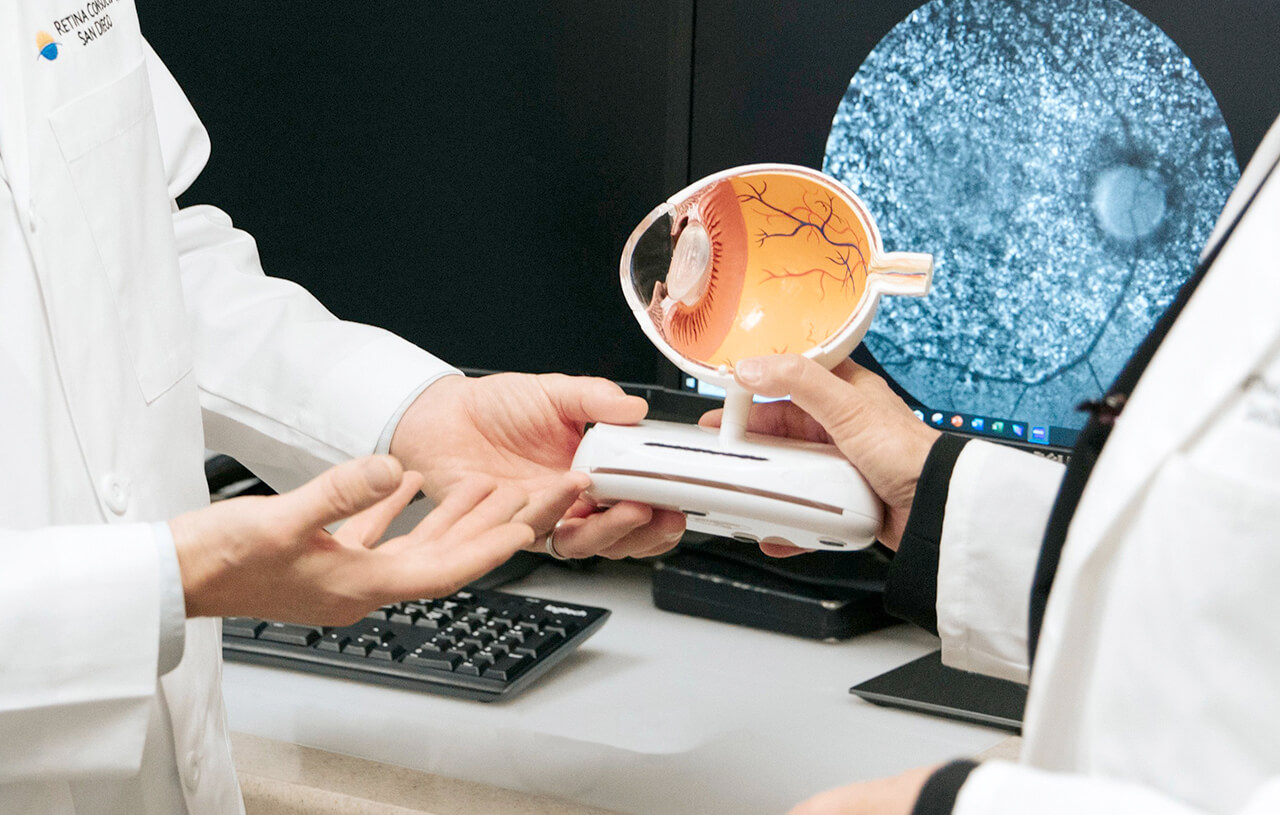What is the Retina and What Does it Do

As the main organ responsible for our ability to see, the eyeball is arguably one of the most important parts of the human body. Composed of many parts, the eye acts as an intricate machine that, when working properly, can gift us with the most incredible visions. However, because of its delicate, complex nature, the eye is as vulnerable as it is powerful.
One of the most important components of the eye is the retina, which is a thin layer of tissue that lines the back of the eye. With an approximate thickness of 0.5 mm, the retina consists of light-absorbing photoreceptors called rods and cones and contains about 200 million neurons. As such, the retina acts as an extension of the brain via the optic nerve.
The retina’s primary function is often compared to how film works in a camera. With a camera, light comes through the lens and converts the light into images that are imprinted onto the light-sensitive materials contained in the film. With vision, the light enters through the lens of the eye, is received by the retina, converted into a neural signal, and then transported to the brain via the optic nerve. When the brain receives these signals, it converts it into an image.
The Macula of the Retina
At the center of the retina is the macula, an oval-shaped pigmented area that is responsible for our central vision and our ability to process visual information in high definition. This is the part of the eye that makes it possible for us to read, see fine details, recognize faces, and perform countless other visual tasks every day. The macula measures at about 5 mm in diameter and is subdivided into six distinct sections.
Common Retina Problems
Due to its fragile nature, there the retina can be damaged by a wide range of factors, including traumas, chronic conditions, and underlying health issues. Some of the most common retina conditions include:
- Macular degeneration, a condition of aging in which the macula deteriorates
- Diabetic retinopathy, a diabetes-related condition in which blood vessels in the retina become damaged
- Macular hole, a condition in which there is a small tear in the macula caused by vitreous shrinkage or separation
- Retinal detachment, a serious condition in which the retina separates from the blood vessels.
Retina Symptoms to Look Out For
Many retina conditions start off with minor to moderate symptoms, such as eye floaters or blurriness. Other more serious symptoms can include:
- Flashing lights
- Blind spots
- Distorted vision
- Double vision
- Disruptive vision loss
Learn More About Retinal Health
As a delicate apparatus, the retina needs to be cared for as much as possible. While many retina conditions produce only minor symptoms, it’s important to remain vigilant in order to preserve your vision. If you are at risk for a retina condition or have experienced any of the above symptoms, contact the retina specialists at Retina Consultants San Diego today.

